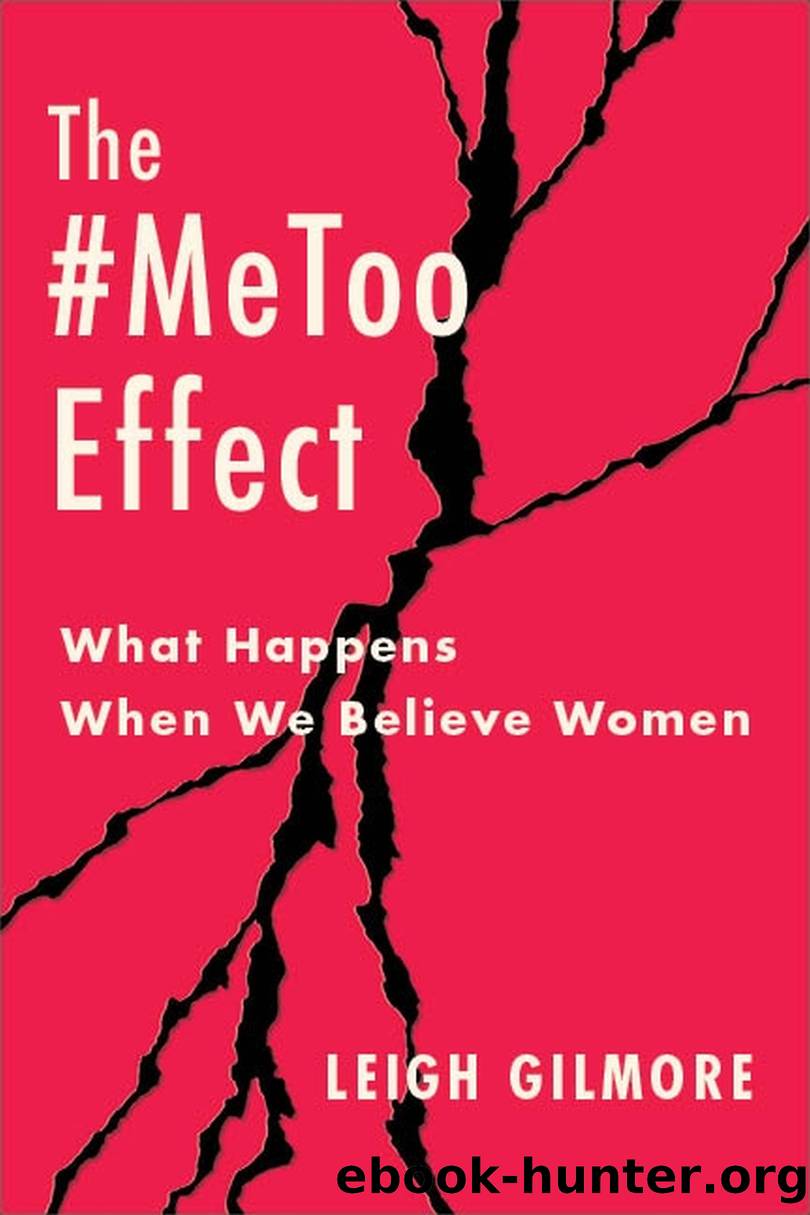The #MeToo Effect by Leigh Gilmore

Author:Leigh Gilmore
Language: eng
Format: epub
Publisher: Columbia University Press
8
CONSENT BEFORE AND AFTER #METOO
Regretting drinking is not the same as regretting sexual assault. We were both drunk, the difference is I did not take off your pants and underwear, touch you inappropriately, and run away. Thatâs the difference.
âCHANEL MILLER, KNOW MY NAME
There is no consensus about consent. Its meaning has shifted as the rising demand for women to be free from sexual violence has forced changes in rape laws. In cultural conversations, and especially in educational settings, consent has moved to the fore as a conceptual framework for understanding bodily autonomy and sex. Many activists and advocates hope that consent will provide a shared baseline that guarantees everyone will have the right to say no. This hopeâmotivated by the desire to prevent sexual violenceâconfronts obstacles in law and culture. In the law, consent is often up for debate. A victimâs testimony that she did not consent too easily ends up on the âshe saidâ side of the scale. In cultural debates, where legal meanings migrate to diminish survivor credibility, consent is hardly a panacea for the power imbalance and violence that motivate rape. Whether consent is a necessary baseline a hopeless muddle, or the âleast-bad standard available for sexual assault law,â it establishes a floor, not a ceiling, for ensuring sexual agency.1 The #MeToo effect made consent into a narrative genre about the right of the survivor to tell the story of âno.â
The meanings of consent arise in two distinct locations: intimate life, where it can be a tool for understanding and enacting sexual agency, and law, where consent can be rewritten as âshe said.â Consent as a legal term is about argument: two people dispute what happened and who has the right to interpret it. In practice, consent does not guarantee that sex will produce feelings of connection and intimacy, or even be satisfying, only that those involved were willing. Nor can consent, as Katherine Angel writes, âmiraculously displace the imbalances of power that operate in our every interaction.â2 We need consent because of these power imbalances. We act within limits when we say âyesâ to anything, including sex, but for a yes to be meaningful, we must be able to say no. In rape investigations and legal defenses, this choice is rendered meaningless when âhe saidâ it was consensual and âshe saidâ it was rape is seen as a stalemate. The meaning of consent has shifted after #MeToo, but it remains an artifact of systemic bias refashioned with variable success into a tool through which to assert sexual autonomy. By looking at examples that originate in the #MeToo buildup and find their largest public audience after its breakthrough, this chapter examines the role of consent in high-stakes battles over accountability in formal structures.
Debates about consent that neglect the actual conditions in which women negotiate both safety and sex ring hollow, and yet the law often treats consent abstractly when it mentions it at all. The Moral Penal Code of 1962 addressing the adjudication of rape and related sexual offenses does not mention consent.
Download
This site does not store any files on its server. We only index and link to content provided by other sites. Please contact the content providers to delete copyright contents if any and email us, we'll remove relevant links or contents immediately.
4 3 2 1: A Novel by Paul Auster(12393)
The handmaid's tale by Margaret Atwood(7766)
Giovanni's Room by James Baldwin(7346)
Asking the Right Questions: A Guide to Critical Thinking by M. Neil Browne & Stuart M. Keeley(5775)
Big Magic: Creative Living Beyond Fear by Elizabeth Gilbert(5774)
Ego Is the Enemy by Ryan Holiday(5450)
The Body: A Guide for Occupants by Bill Bryson(5097)
On Writing A Memoir of the Craft by Stephen King(4944)
Ken Follett - World without end by Ken Follett(4734)
Adulting by Kelly Williams Brown(4574)
Bluets by Maggie Nelson(4559)
Eat That Frog! by Brian Tracy(4540)
Guilty Pleasures by Laurell K Hamilton(4449)
The Poetry of Pablo Neruda by Pablo Neruda(4109)
Alive: The Story of the Andes Survivors by Piers Paul Read(4033)
White Noise - A Novel by Don DeLillo(4011)
Fingerprints of the Gods by Graham Hancock(4004)
The Book of Joy by Dalai Lama(3986)
The Bookshop by Penelope Fitzgerald(3854)
